The road from Kutaisi followed the flat coastal plains of what used to be, in Greco-Roman geography, Colchis — the land where Jason and his Argonauts sought the Golden Fleece.
Archaeologists believe there may have been some truth to this legend, at least as far as the fleece was concerned. Around the 5th century BC, people in this region did sometimes stretch a sheep fleece over a wooden frame and submerge it in a stream to trap flecks of gold washed down from placer deposits.
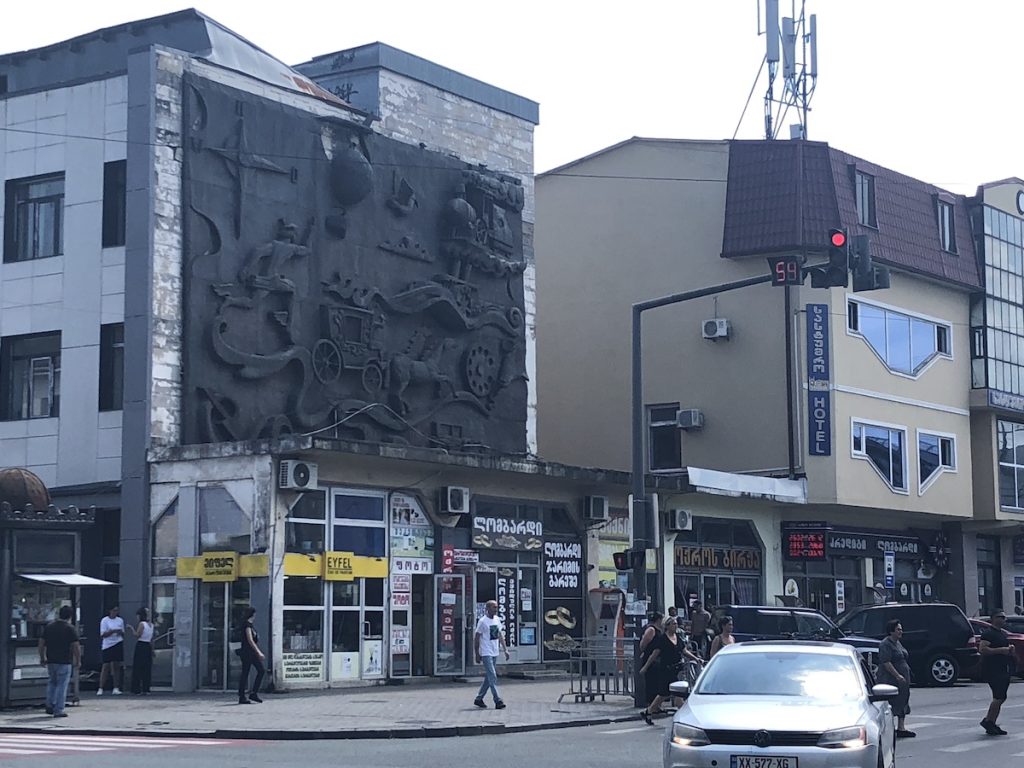
But golden sheep were not my concern on that late Wednesday afternoon. Cows were.
The plains were smothered in lowland heat as our driver glued his bumper to the car ahead, swerving around potholes and skimming the noses of cows that walked, stood or slept on the tarmac of the E60 highway with remarkable stubbornness.
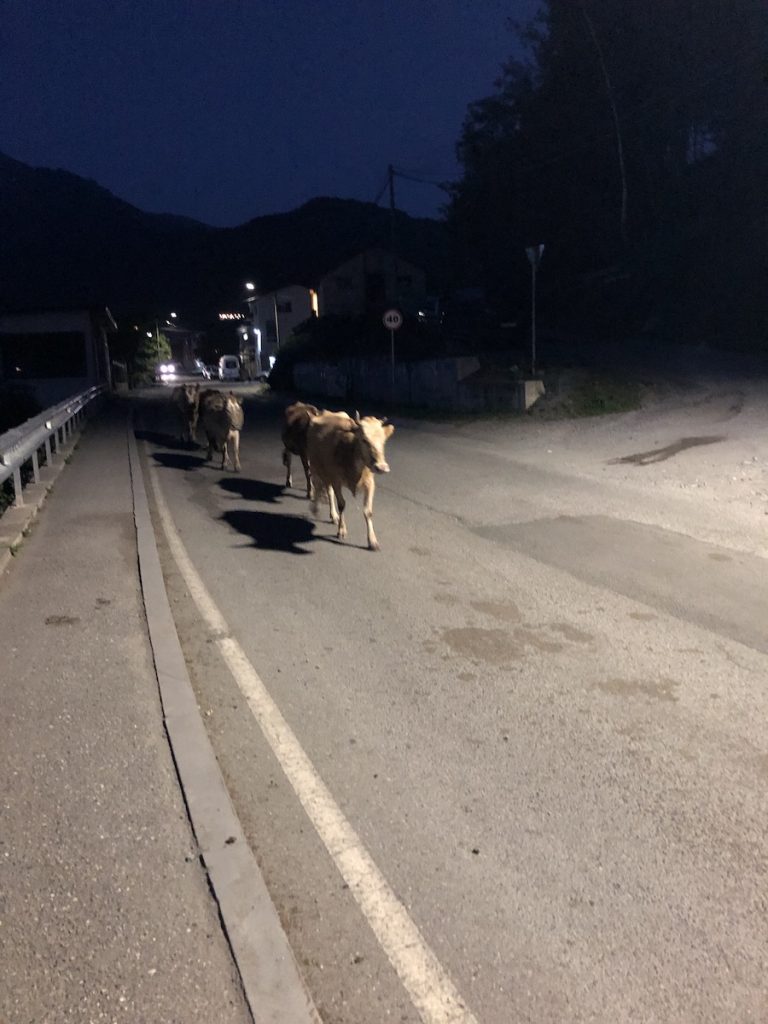
Despite all sorts of internet alarmism, Georgian driving wasn’t nearly as treacherous as website wisdom repeatedly warned. Then again, perhaps 6 years in Malta had completely inoculated me against automotive manoeuvres of shocking stupidity.
We left busy Zugdidi behind within a couple hours, and were soon climbing into hills that turned abruptly into mountains.
What had once been a difficult dirt track is now paved, but thanks to harsh winters and regular landslides, its surface was regularly potholed, corduroyed, or missing entirely where a section had plummeted into the gorge below.
Darkness fell, and still we swerved on. My brain throbbed with the remnants of a sleepless night, and my stomach clung grimly to dull emptiness with every switchback ascent.
I thought the drive might go on forever, that we’d fallen into the world of myth, or into some sort of parallel sleep-deprived reality, but then the first tower houses appeared, tapering upwards to 25 metres, their machiolated parapets riven with holes for hurling projectiles. The entire village bristled with them, like a porcupine in a rage.
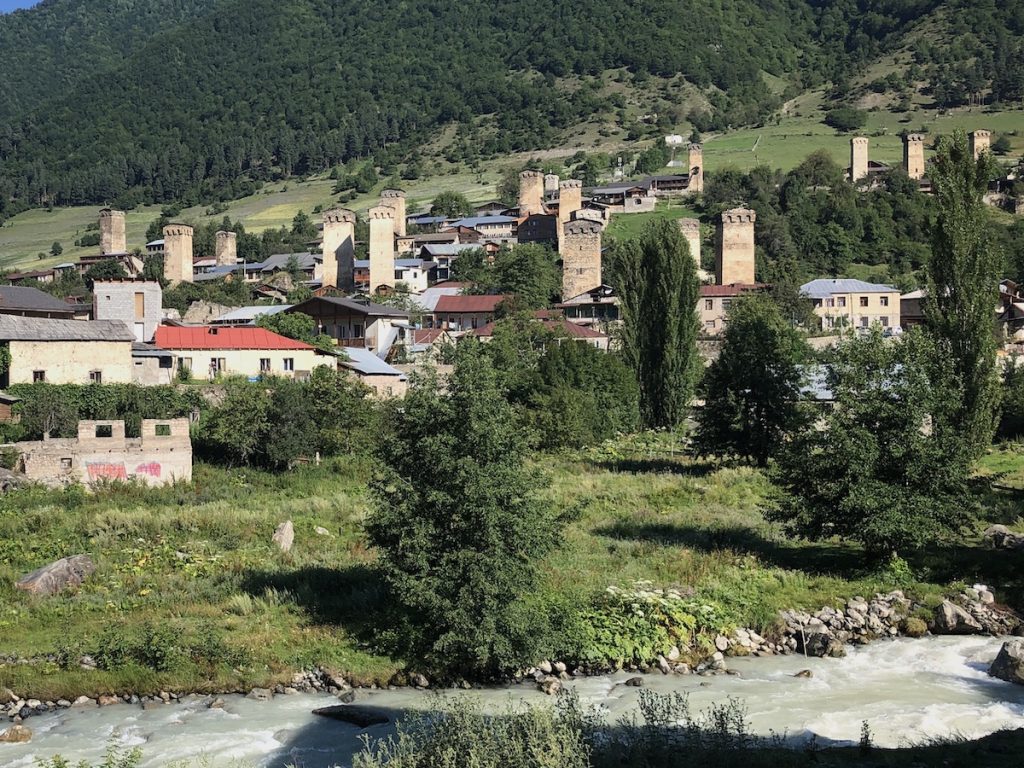
Most of these structures date back to the 12th and 13th centuries, built to serve as a family defence against avalanche, vendetta and siege, but the bases of some likely originate in the first century BC.
The period of anarchy — some would say freedom — in the Svaneti ended with the 19th century Russian invasion, but banditry and kidnapping reigned again with the collapse of the Soviet Union. I thought about those times as I slumped on the back seat with an air of apostolic detachment from my weary flesh.
We finally reached the regional capital of Mestia around 9:30pm, but to my addled wits it felt much later.
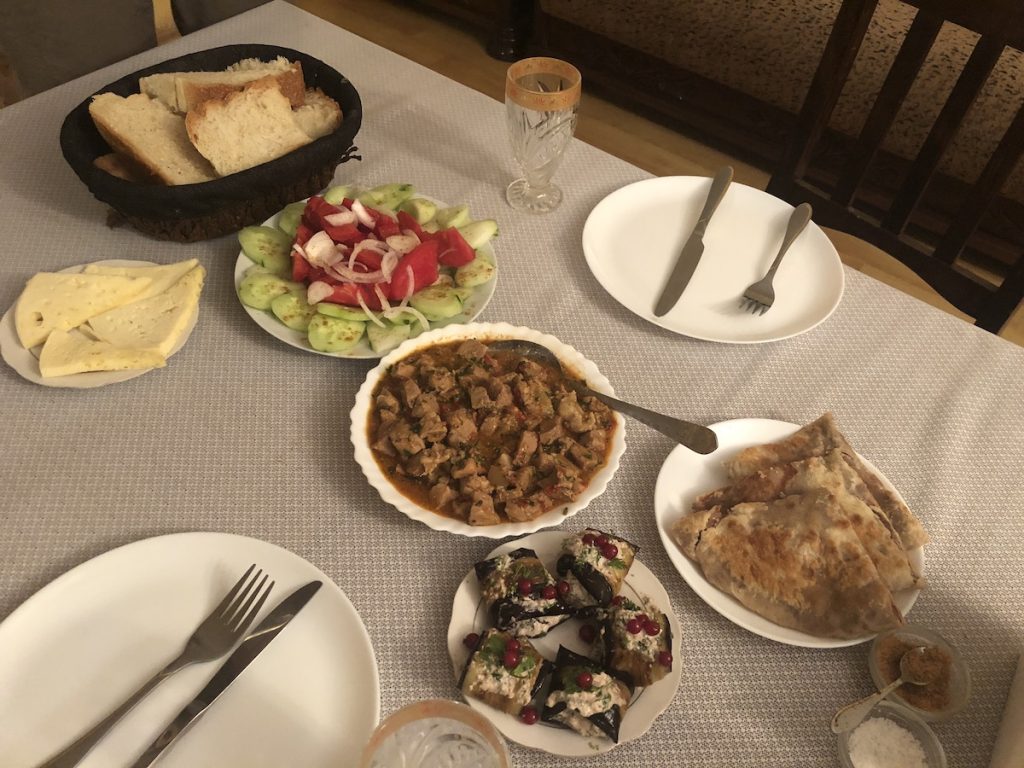
Dinner for two was waiting for us in an empty room at Meri’s Guesthouse: cucumber and tomato salad, with tomatoes of a redness and ripeness I’d never encountered anywhere else; badrijani (rolled up aubergine slices smothered in walnut and garlic paste); kubdari (khachapuri bread stuffed with minced meat and herb filling); salty cheese and other dishes.
I’d chosen this guesthouse because the best hiking website on the region — Caucasus Trekking — had raved about the “kind, hard-working woman with infectious laughter” who was “a terrific cook”. The dinners were slightly more expensive than food at other guesthouses, but they were worth every lari.
I’d arranged that ride direct from the airport so we could hit the ground plodding early the next morning with a hike to the Chkhuti Ridge.
The trail begins by following the first stage of the 4-day Mestia to Ushguli route, the most popular trek in Georgia, and in the August high season, busy with babbling groups of Spanish and French. It didn’t interest me, in part because of the crowds but also because it seemed to involve an awful lot of road trudging.
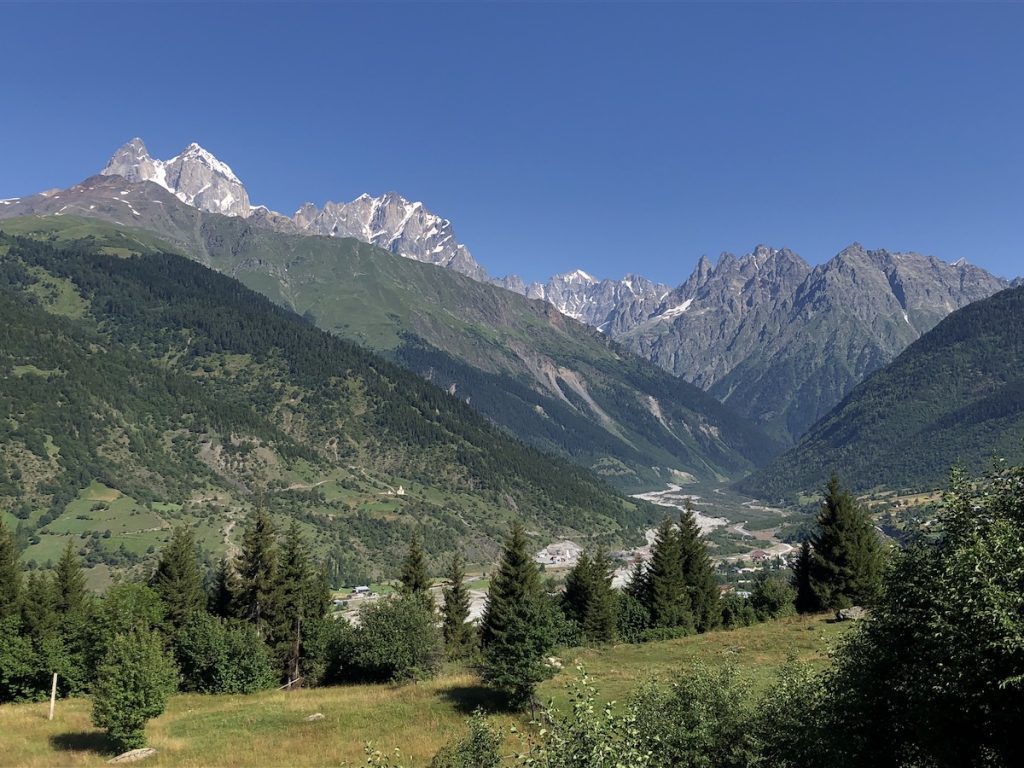
None of that was a concern beyond the first two hours of our walk. We soon left the main route behind us, crossing a broad meadow and following a distant ridge to a patch of beech and pine forest where a steep trail led up through trees wet with dew.
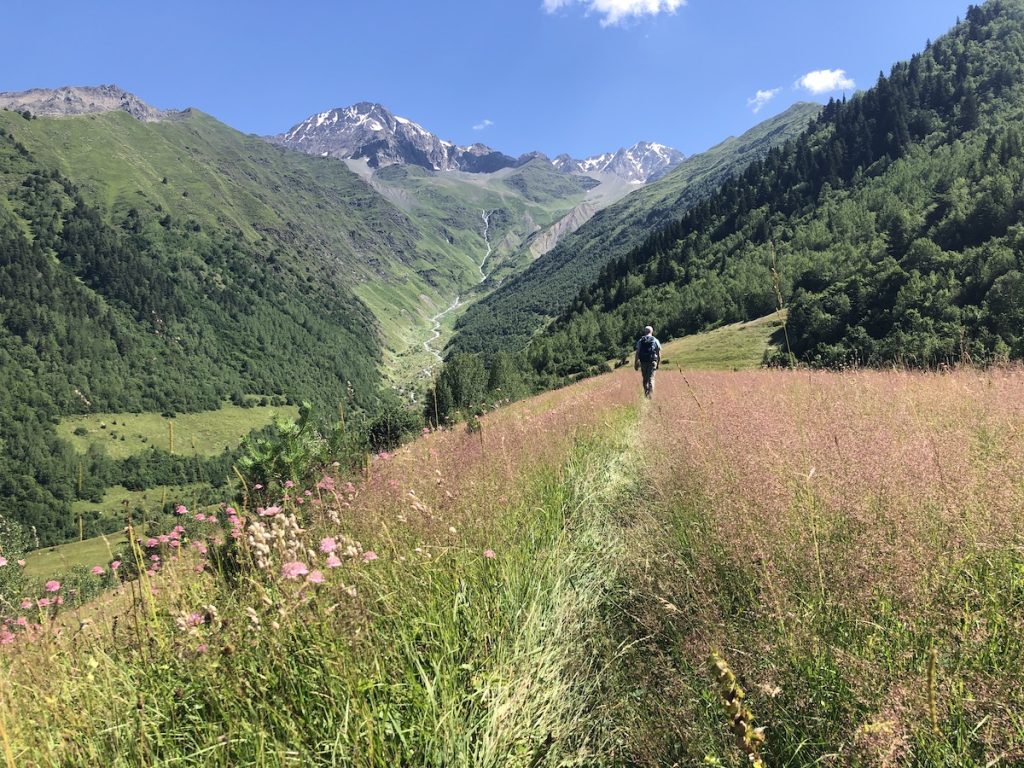
From that point, we didn’t see anyone else all day.
The forest quickly gave way to small shrubs until even these had been replaced with nettles and wildflowers, and open views of snow covered peaks of the high Caucasus towards the Russian border, which at that point was 12 to 15km away.
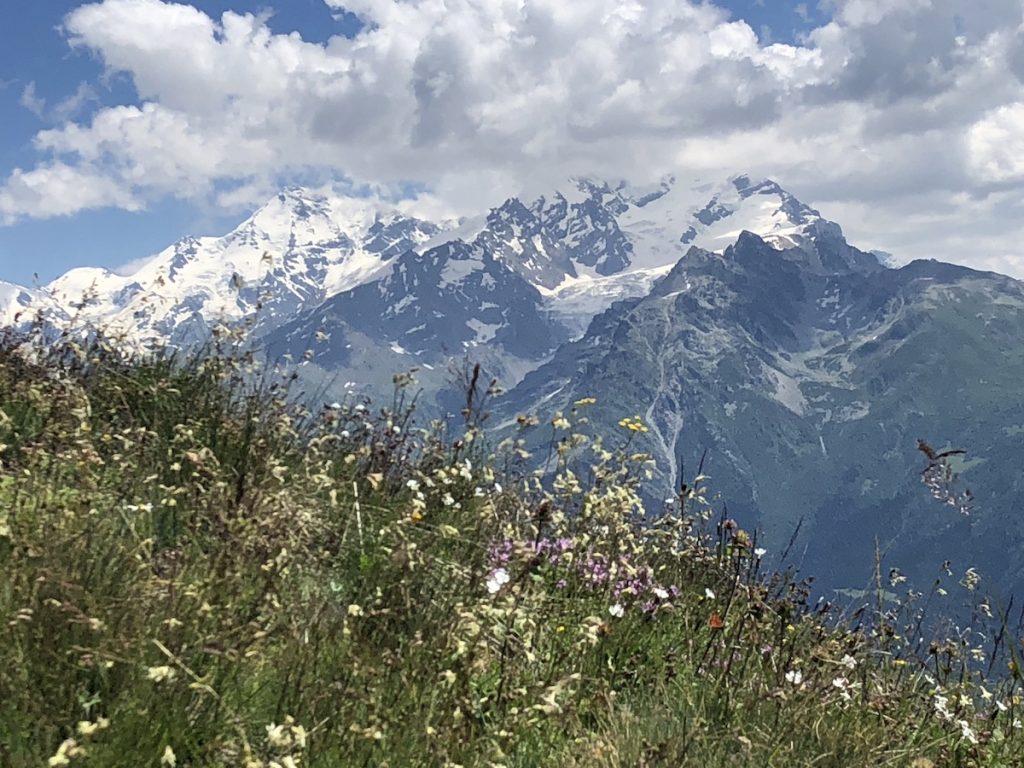
The ridge continued climbing upward at a more moderate rate, and I plodded along it. I was hoping to reach the first higher peak, or even the highest point on the route, where three stone cairns pointed grey fingers at the sky.
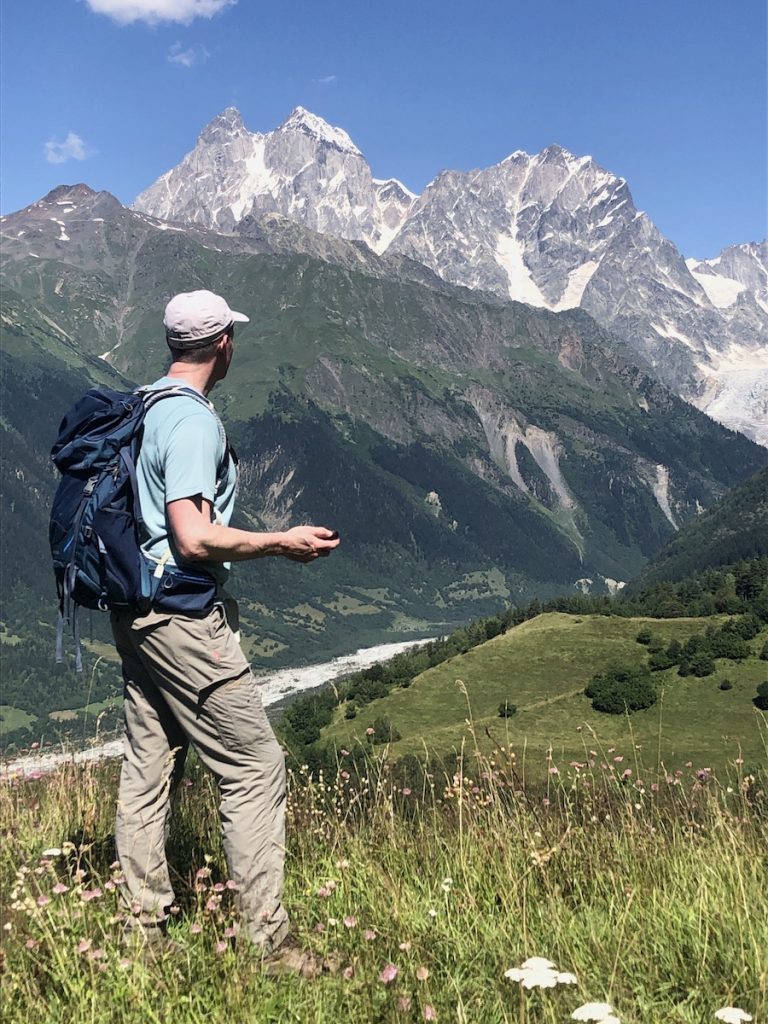
But that’s when I heard a shout from behind and below.
“My boot broke!”
The sole of one of Tomoko’s boots had completely peeled off, and the other was well on its way — a surprisingly common problem with hiking boots, especially when not in regular use.
We stopped and ate our lunch of leftover khachapuri (cheese-stuffed bread) and homemade cake snagged at breakfast, and reluctantly decided to descend.
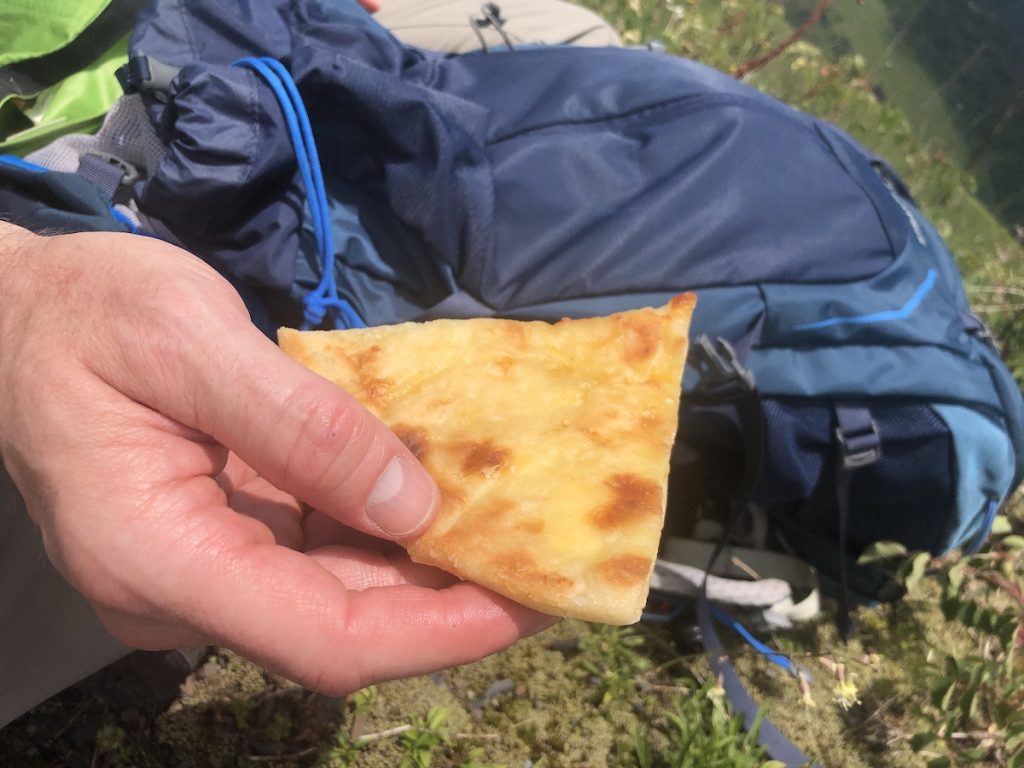
She was willing to wait while I pushed on to the cairn, but I didn’t know how much worse her boots might get, or how long the walk would take. They held up on the steep bits of trail, much to my surprise, but as I expected, the final road trudge was too much, and her toes were poking through by the end of it.
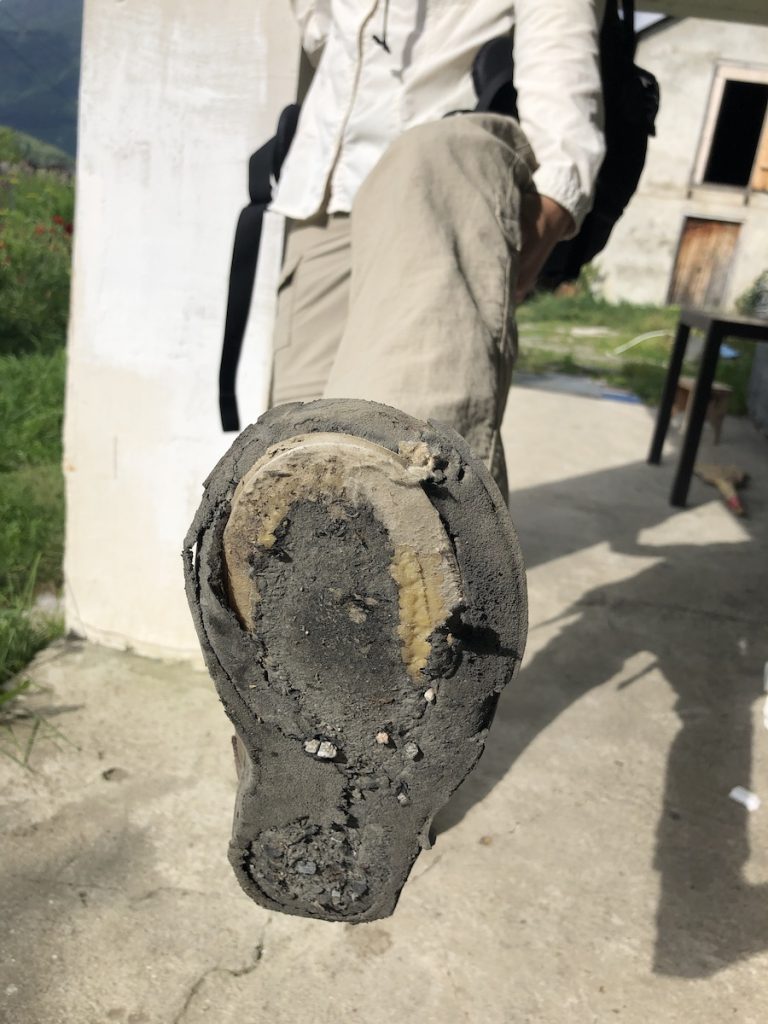
She was able to buy a pair of cheap Chinese North Face knockoff shoes in the village, but they were completely unsuited to anything beyond a flat stroll. Her hiking was finished before she’d started. I would go on to do two more hikes on my own.
At least there was dinner to look forward to. Meri laid on an incredible feast: a sort of minestrone soup liberally seasoned with Svaneti salt (a mixture of sea salt, fenugreek, coriander, chili pepper, dill and other herbs), tender meatballs, a cauliflower dish, a dish of eggplant and potato that contained enough garlic to repel a coven of vampires, and a pitcher of homemade amber wine, of which I’ll have more to say later.
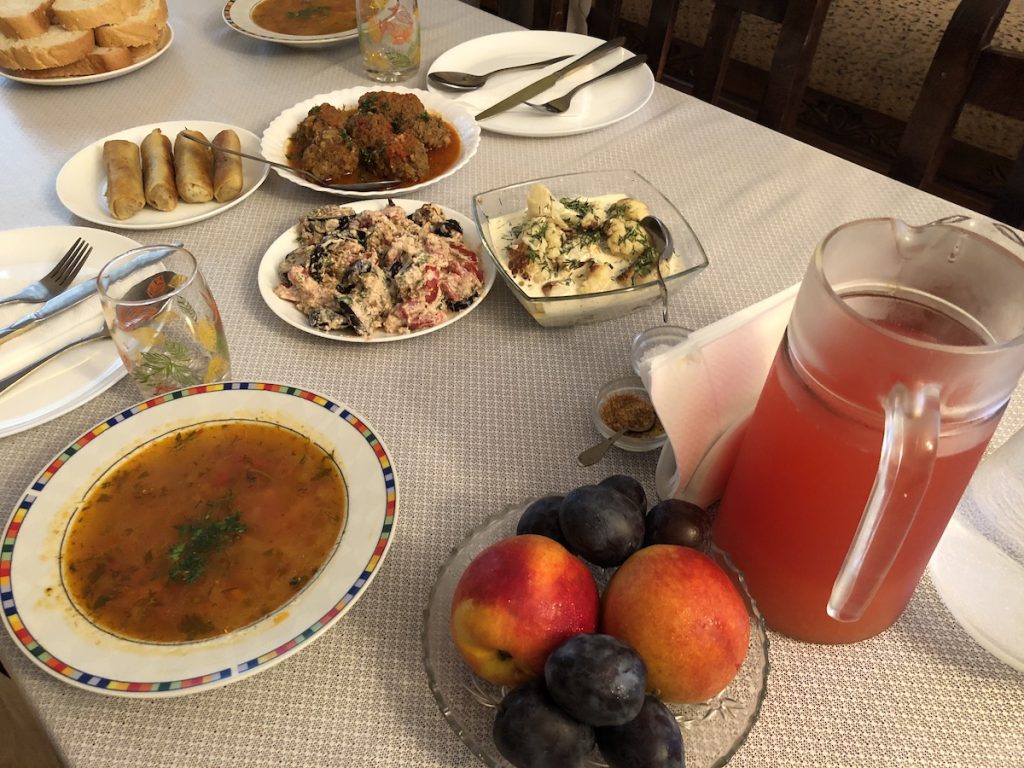
Right now I have to pack my things. We’re off to the village of Ushguli in the morning, deeper into the Svaneti, for another Caucasus hike.
Photos © Tomoko Goto 2023
